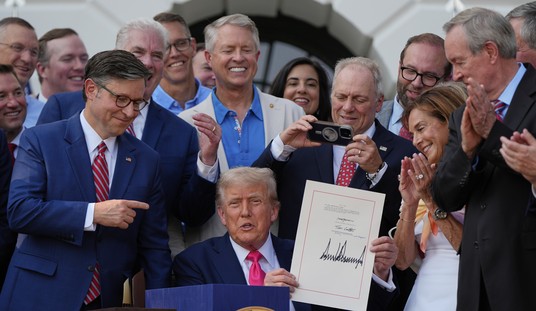There may be no more efficient method of communication than price. The market always knows best. Prices instantly convey the collective wisdom of producers and consumers involved at every stage of production, signaling to each whether they should produce, or consume, more or less.
For years, opponents of fossil fuels have warned of “peak oil,” an anticipated point beyond which there will no longer be enough retrievable deposits to sustain our insatiable thirst. It has always been a flawed claim, first because it ignores the human capacity for innovation, and also because the artificial restrictions offered in response only exacerbate supply problems.
Of course, peak oil was never about making anything better. It was never about solving a supply problem. It was about opposing fossil fuels as such. News out of MIT confirms this motive, as one professor bemoans the development of new production techniques which have made fossil fuels cheaper. From MIT News:
… Technology-driven cost reductions in fossil fuels will lead us to continue using all the oil, gas, and coal we can, unless governments pass new taxes on carbon emissions.
“If we don’t adopt new policies, we’re not going to be leaving fossil fuels in the ground,” says Christopher Knittel, an energy economist at the MIT Sloan School of Management. “We need both a policy like a carbon tax and to put more R&D money into renewables.”
While renewable energy has made promising gains in just the last few years — the cost of solar dropped by about two-thirds from 2009 to 2014 — new drilling and extraction techniques have made fossil fuels cheaper and markedly increased the amount of oil and gas we can tap into. In the U.S. alone, oil reserves have expanded 59 percent between 2000 and 2014, and natural gas reserves have expanded 94 percent in the same time.
“You often hear, when fossil fuel prices are going up, that if we just leave the market alone we’ll wean ourselves off fossil fuels,” adds Knittel. “But the message from the data is clear: That’s not going to happen any time soon.”
Cheaper fossil fuel production should be heralded as good news. Increased value at a lower cost is always good. It enables actors throughout the economy to get more done, to be more productive, and thus improve their quality of life. By advocating the artificial encumberment of carbon tax, Knittel argues for less productivity and a lower quality of life. That’s morally indefensible.









Join the conversation as a VIP Member